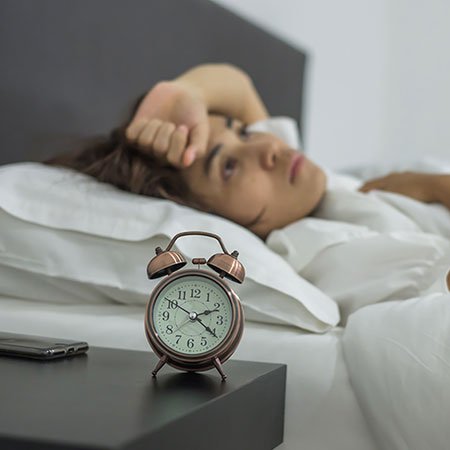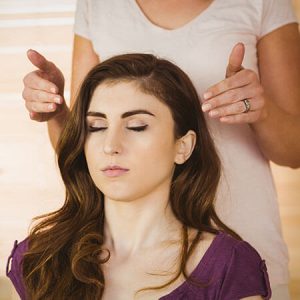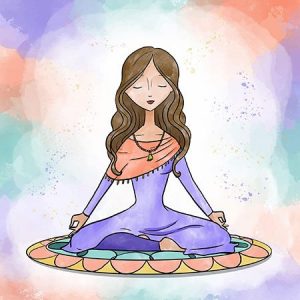Insomnia is a common sleep disorder that regularly impacts millions of people throughout the world. Those who suffer from this condition finds it tough to stay asleep. Daytime sleepiness, mood swings, lethargy, anxiety, and irritability, are some of the common annoying symptoms associated with it. If this condition prevails for a longer time, then it can lead to development of chronic diseases in a person. In this article, we will talk about this disorder, and ways to treat, and prevent this condition.
What Is Insomnia?
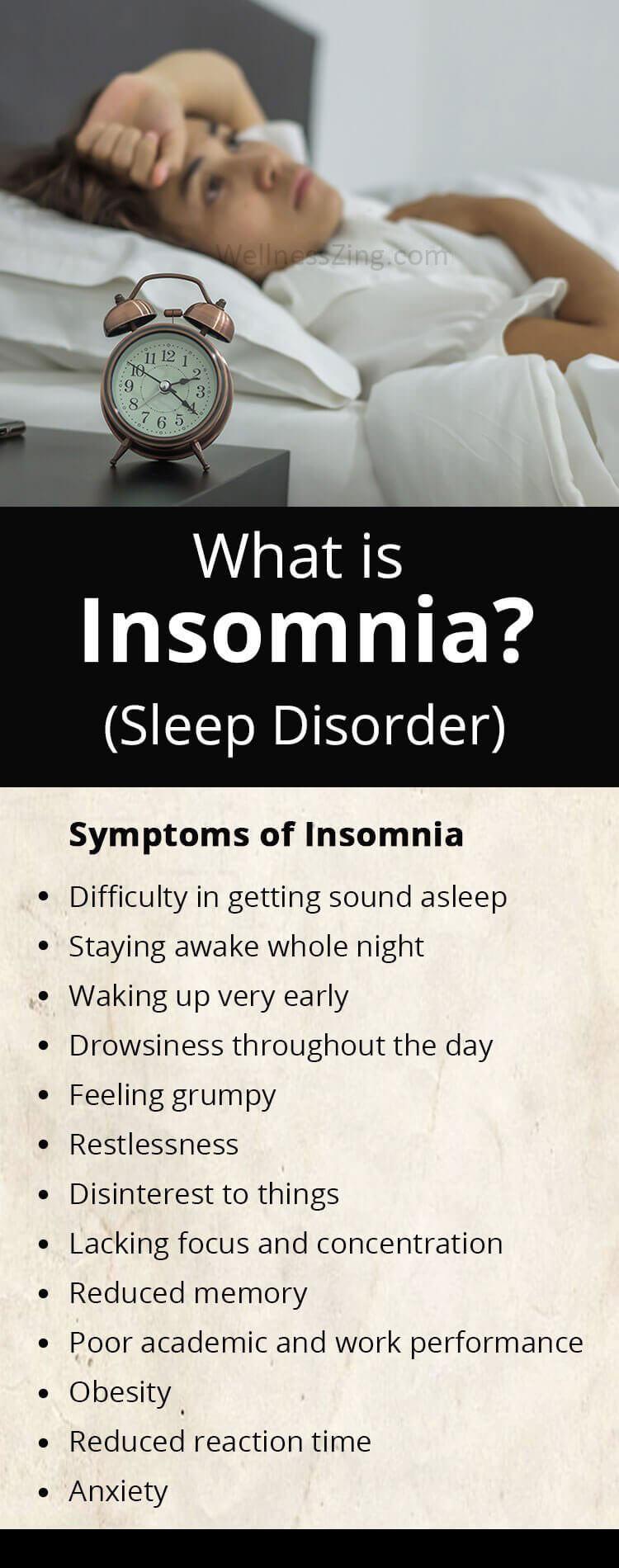
Insomnia is one of the most troublesome issues that prevents a person from staying asleep. This sleep disorder can either be short-term, as well as long-term Acute form of insomnia can range go for some weeks to few months and more. It causes a lot of disturbance in the life of the person.
From daily functioning, to performance at work and relationships, this disorder adversely impacts various aspects of the life of a person. Reduced work performance, inferior sleep quality, tiredness, poor decision-making skills, lack of concentration, depression and severe ailments such as heart issues, can be the consequences of this disorder.
What are the reasons that leads to Insomnia?
Insomnia is the among the most common complaints observed in people. As everyone’s body composition, existing health condition, lifestyle, etc. is different, the cause of this problem can also vary among people. Out of all the reasons that contribute to this irritating disorder, the major cause behind its occurrence is “Stress”. This is also the fundamental reason behind several other life-threatening health issues. Stress can be due to change in personal or professional reasons such as change in job, divorce, demise of loved one, etc.
Other reasons could be:
- Surrounding conditions that includes light, temperature, extreme cold, mosquitoes, or heat, light, noise,
- Changes to the sleep time such as a new work shift, overworking to meet tight deadlines, access to social media, and television, can contribute to Insomnia. The blue light that is released from smartphones affects natural levels of melatonin in the body and delays sleep.
- Psychological factors such as bipolar disorder, anxiety disorders, depression or psychotic disorders can lead to Insomnia
- Medical conditions that includes severe pain, acute fatigue syndrome, congestion in heart, angina, acute obstructive pulmonary disease, acid-reflux disease, sleep apnea, tumors, asthma, Parkinson’s disease, endocrine issues, restless legs syndrome, Alzheimer’s diseases, arthritis, hyperthyroidism, brain abrasions, stroke.
- Hormonal imbalance
- Genetic conditions
- Overactive mind
- Pregnancy
- Mental health issues such as anxiety, and depression
- Existing medications for treatment of allergies, colds, asthma, high blood pressure and depression
- Pain or uneasiness at night
- Intake of caffeine, tea, alcohol, or tobacco before sleep
What are the different Types of Insomnia?
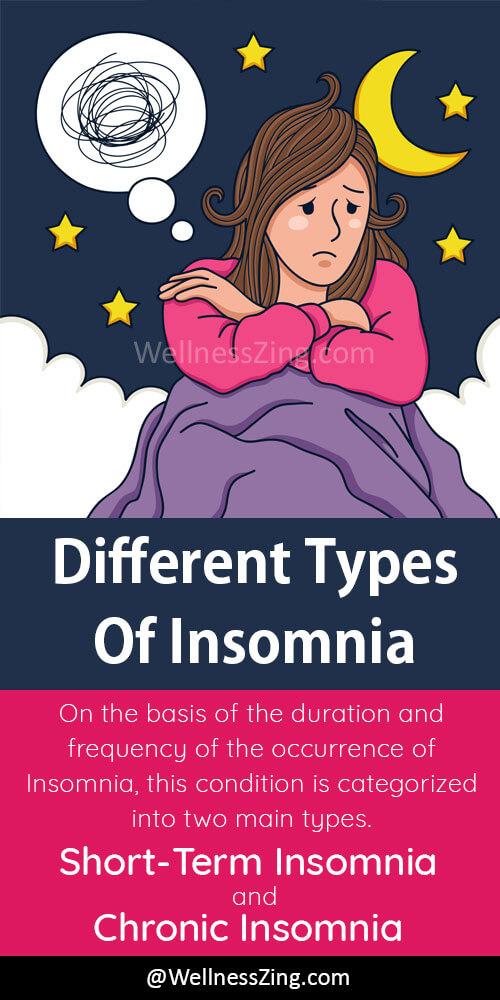
On the basis of the duration and frequency of the occurrence of Insomnia, this condition is categorized into two main types.
1. Short-term insomnia
This is a mild form of insomnia that lasts for around a few weeks to even three months. Around twenty percentage of population is estimated to be affected by it. This is the starting stage of insomnia that when not treated on time, can develop into chronic stage.
2. Chronic insomnia
This type of insomnia happens thrice in a week and can go on for several months. Around ten percentage of population is affected by this type of Insomnia.
What are the Risks Factors associated to Insomnia?
An occasional night of low-quality sleep is common. But if this condition persists for several days to weeks, then it becomes a matter of concern. Around thirty to thirty-five percentage of adults suffer from this disorder. It is important to know that Insomnia can affect to any person at any point of time and at any age.
Studies carried out in the past have revealed that people who are old are more susceptible to develop this disorder. When seen in terms of gender, women are more likely to develop this condition than men. African Americans are seen to be at a higher risk.
In addition to it, people who suffers from long-term ailment, mental health disorder, or who work in frequent rotating shifts (day vs night), travelers, specifically through several time zones, and menopausal women are prone to suffer from this disorder. Also, people who are addicted to alcohol, or drug have greater chances of getting affected by this condition.
What are the common and visible Symptoms of Insomnia?
Having talked about the types, and causes of Insomnia, now let us look at how do you feel when you develop this disorder:
- difficulty in getting sound asleep
- staying awake whole night
- waking up very early
- drowsiness throughout the day
- feeling grumpy
- restlessness
- disinterest to things
- lacking focus and concentration
- reduced memory
- poor academic and work performance
- obesity
- reduced reaction time
- anxiety
- Irritability
- inferior immunity system
- lack of coordination in different faculties of the body
- an increase in accidents, or errors
- tension
- feeling tightness in area surrounding the head region accompanied by pain
- difficulty in socializing
- anger
- frustration
- digestion problems like acidity, bloating, constipation etc.
- feeling dull, and unmotivated
- losing zeal in life
The person who is affected by this disorder wakes up without feeling refreshed, and awake. The longer the condition goes, the greater it affects your entire body. If you do not deal with this issue at the right time, then it can even lead to development of acute depression, and suicidal tendencies in the person.
As a person loses concentration, and focus, this condition can be very challenging for those who are bus drivers, auto drivers, or in any other job that demands attention at every instant. By not being able to remain focused, it can put lives of many at risk.
How is Insomnia Diagnosed?
Now that you have known about the severity of condition, let us now learn about how this condition is diagnosed, and treated. You need to know that the sooner you treat any condition, the quicker will be the recovery and the lesser will be the damage. If you have been facing sleep issues from the past couple of days and relate to the above symptoms, then do not delay to get a consultation from your doctor.
He will carry out a thorough physical examination and get complete detail about your sleep history, and medical history. He might instruct you to maintain a sleep record for a few weeks, track your sleep patterns and the way you feel throughout the day. This will help a lot in learning about your sleeping patterns.
If needed, your doctor may even discuss with your partner about the quality of sleep, and frequency of experiencing sleeping discomfort / disturbed sleep. Based on the information, he may recommend you to perform specialized tests at an authorized sleep center.
A sleep specialist will begin by probing some questions about the sleep patterns, and medical history of an individual. A physical examination can be performed to figure out any underlying conditions. The doctor may check for drug, alcohol and psychiatric disorders.
For the medical examination to begin, the person should have experienced this condition for over a month period. Some of the tests that he will advise to perform are polysomnography, and actigraphy. Polysomnography is a sleeping test that tracks sleeping patterns of a person. Actigraphy makes uses of a small-sized, wrist-worn device that records sleep-wake patterns, and movement in a person.
How is Insomnia Treated?
Acute insomnia, or short-term insomnia may not require any treatment. When chronic disorder is identified, then its underlying cause can also be treated as well as corrected properly. Based on the identified reason, medical as well as behavioral, or non-pharmacological treatments is employed by the doctor.
As Insomnia deprives a person from quality sleep, it becomes very difficult for people to perform their day to day activities. Sleeping pills are one of the measures that is taken to avoid drowsiness. It is advised to not indulge in over-the-counter sleeping pills as they can cause long-term side effects on your health.
CBT or Cognitive Behavioral therapy is one of the effective, and safest method to treat chronic form of insomnia. It is a non-pharmacological approach that treats the problem from the root level and does not cause any side effects.
This treatment helps you make positive changes in the lifestyle that promotes sleep. This therapy is performed in one-on-one, or group counseling sessions. The objective of these sessions is to change your habits that are responsible for worsening the disorder. After successful completion of this therapy, you learn ways that promotes sound sleep.
What Medicines are used in the treatment of Insomnia?
In cases, when the condition becomes chronic, doctors will use the following medications to treat this condition in patients:
- corticosteroids
- alpha blockers
- statins
- SSRI antidepressants
- ACE inhibitors
- beta blockers
- Angiotensin II-receptor blockers
- H1 agonists
- antidepressants
- glucosamine
- cholinesterase inhibitors
- prescription-based sleep-inducing pills
- sleep aids
- antihistamines
- melatonin
Tips, and Home remedies to treat Insomnia
Acute Insomnia can be treated with simple remedies. These healthy practices help you maintain good sleep hygiene that not just promote sleep but also ensures overall health and wellness in a person. Let us see some of these effective tips:
- You should sleep for not more or less than six to eight hours a day.
- Fix your sleep schedule so that you feel sleepy at the same time every day. You can do this by setting an alarm for the same time.
- Avoid longer duration naps at daytime as it will not make you sleepy at night.
- Exercising is important as when you get tired, you can get an effortless sleep. It also helps in reducing stress and promote sleep. Do not work-out just before bed time as exercise will refresh and energize you and make it tough to fall asleep. Ensure to keep a gap of a minimum of three hours between the time you finished exercising and going to bed.
- Maintain a regular sleep schedule.
- Do not smoke, or consume caffeine, alcohol, and nicotine, at night time.
- Do not go to bed with hungry stomach.
- Avoid use of television before sleep time.
- Ensure a comfortable sleeping environment by setting the right room temperature. Make sure that it is not too warm, and too cold.
- Put on soothing music or relax mind with meditation.
- Ensure proper darkness, quietness and ventilation in your bedroom. You can use sleeping aids, like sleeping mask to get rid of light, or use earplugs to reduce sounds.
- Wear comfortable clothes.
- Sleeping right after dinner may cause difficulty in sleeping. Ensure that you eat dinner two hours before sleep. Prefer to eat only light snacks at night. It will help you sleep.
- Do not use phones, laptop or e-books before going to sleep. This is because the light that emits from it can make it difficult to sleep.
- Use your bed only for sleeping. Do not read books, or study in bed.
- Drink warm milk before sleep. It is a proven, and time-tested method that induces sleep.
- Writing your concerns in a diary is a good way to clear your mind and take away anxieties. It is a good way to get a good sleep.
- Ensure your bedsheet, and pillows are clean, and hygienic.
- Invest in a good quality mattress. Your mattress should not be too firm, or too soft. If you sweat a lot then invest in temperature resistant mattresses.
- Experiment with different sleeping positions to find out what gives you comfortable sleep.
With all these good sleep habits tips, you can easily beat Insomnia.
Conclusion
Insomnia has become an acute problem these days. This condition affects the major organ of the body i.e., brain that controls the functioning of all other organs of the body. Increased stress, hormonal changes, medical health conditions etc. can all contribute to this issue. Long-term consequences of this condition can cause a lot of trouble to your body. It is therefore needed to consult with your doctor at the earliest and seek effective remedial measures.
If you liked this post, then do share it with your friends on social media. Also, you can write to us any of your queries, suggestions, and comments. We will be happy to address them soon.
